Northeastern co-ops learn from Boston drug delivery startup—and vice versa
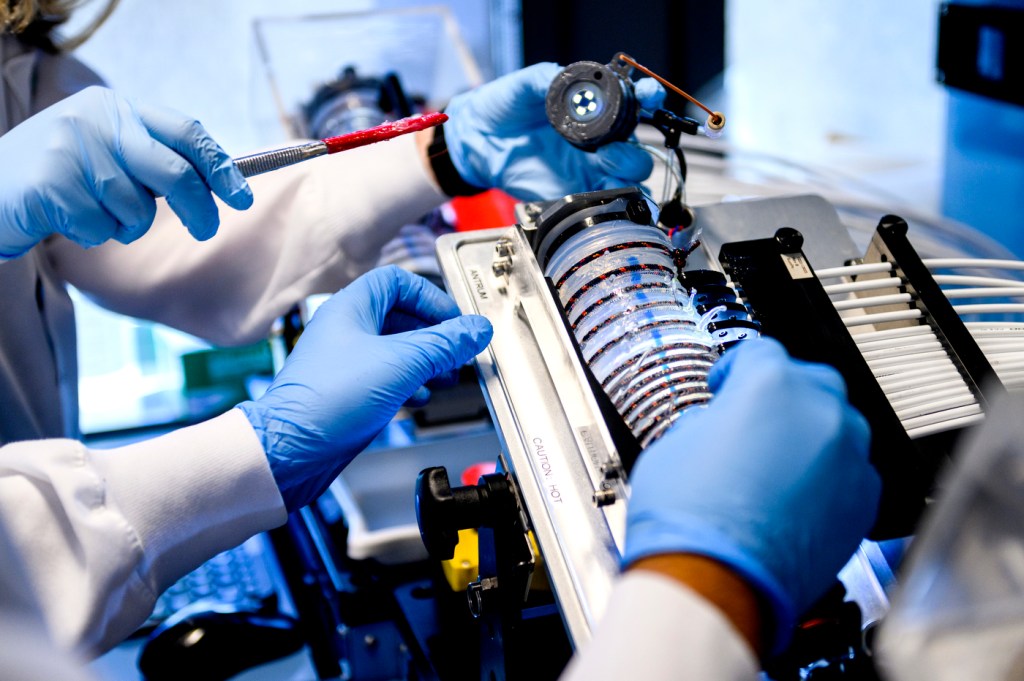
There’s a good reason why Lyndra Therapeutics, a startup in suburban Boston, has employed more than 100 co-ops—a majority of them from Northeastern—over the past four years. Its inaugural co-op, Erik Ryde, invented a key technology for testing Lyndra’s long-acting pills with the potential to transform medicine.
“It’s really awesome to see how empowered our co-ops are,” says Ryde, a 2019 Northeastern mechanical engineering graduate who now serves as a lead engineer at Lyndra. “Every day you see them doing incredibly important work—and that’s built into our work plans, relying on their ability to be creative, solve problems, and analyze data at a very high level.”
The seven-year-old company has tripled in size since the COVID-19 pandemic’s onset while relying on student reinforcements from Northeastern to help build its identity.
“It caught me by surprise … I was challenged by the work that was given to me,” says Sara Liebler, a 2020 mechanical engineering graduate from Northeastern and former co-op herself who now helps manage the 18 co-ops at Lyndra. “There’s not a lot of hand-holding that goes on here. You’re expected to come in with your own ideas and people will support you, but you need to think for yourself. You can’t be a follower. You have to be a leader.”
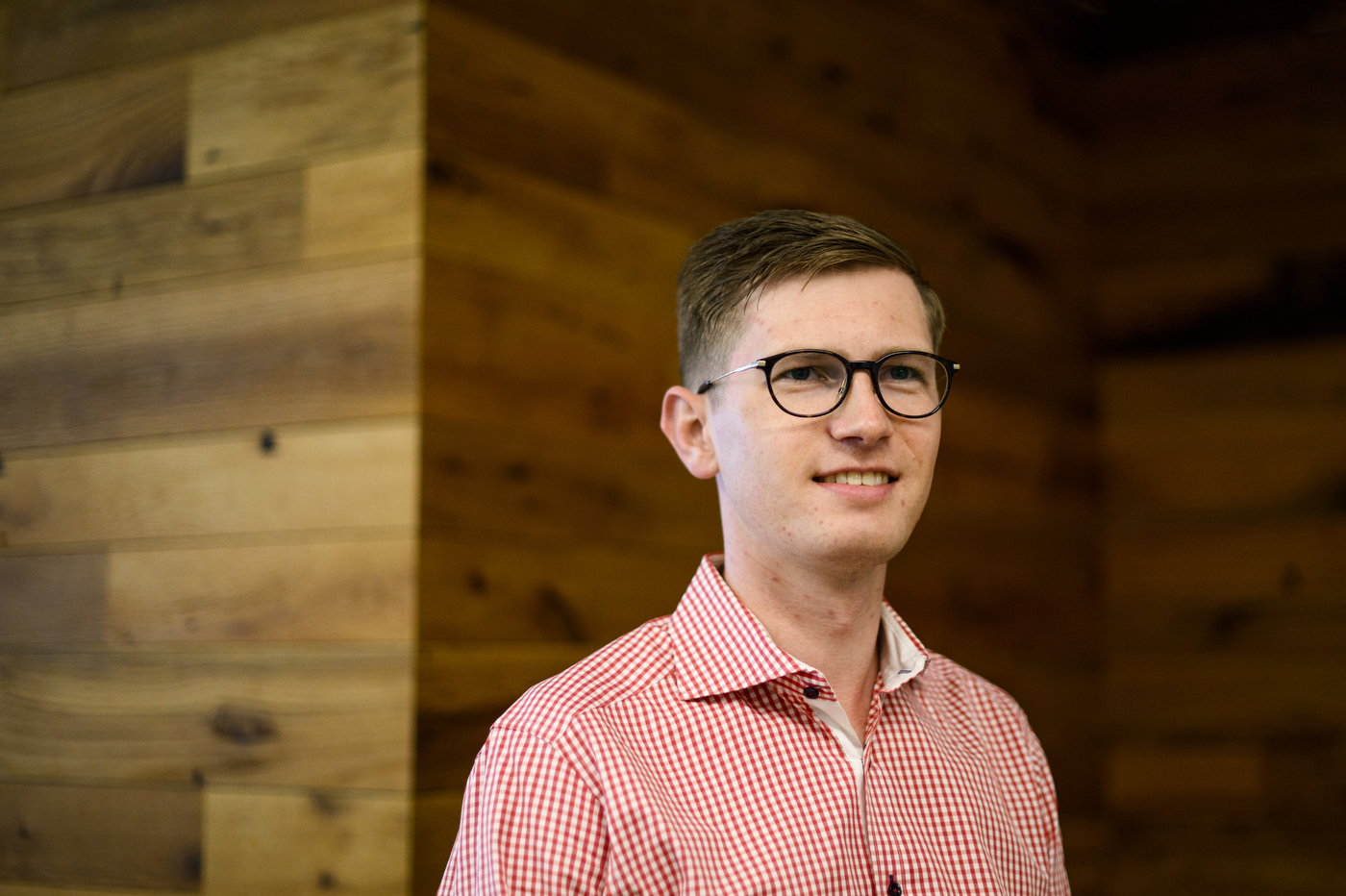
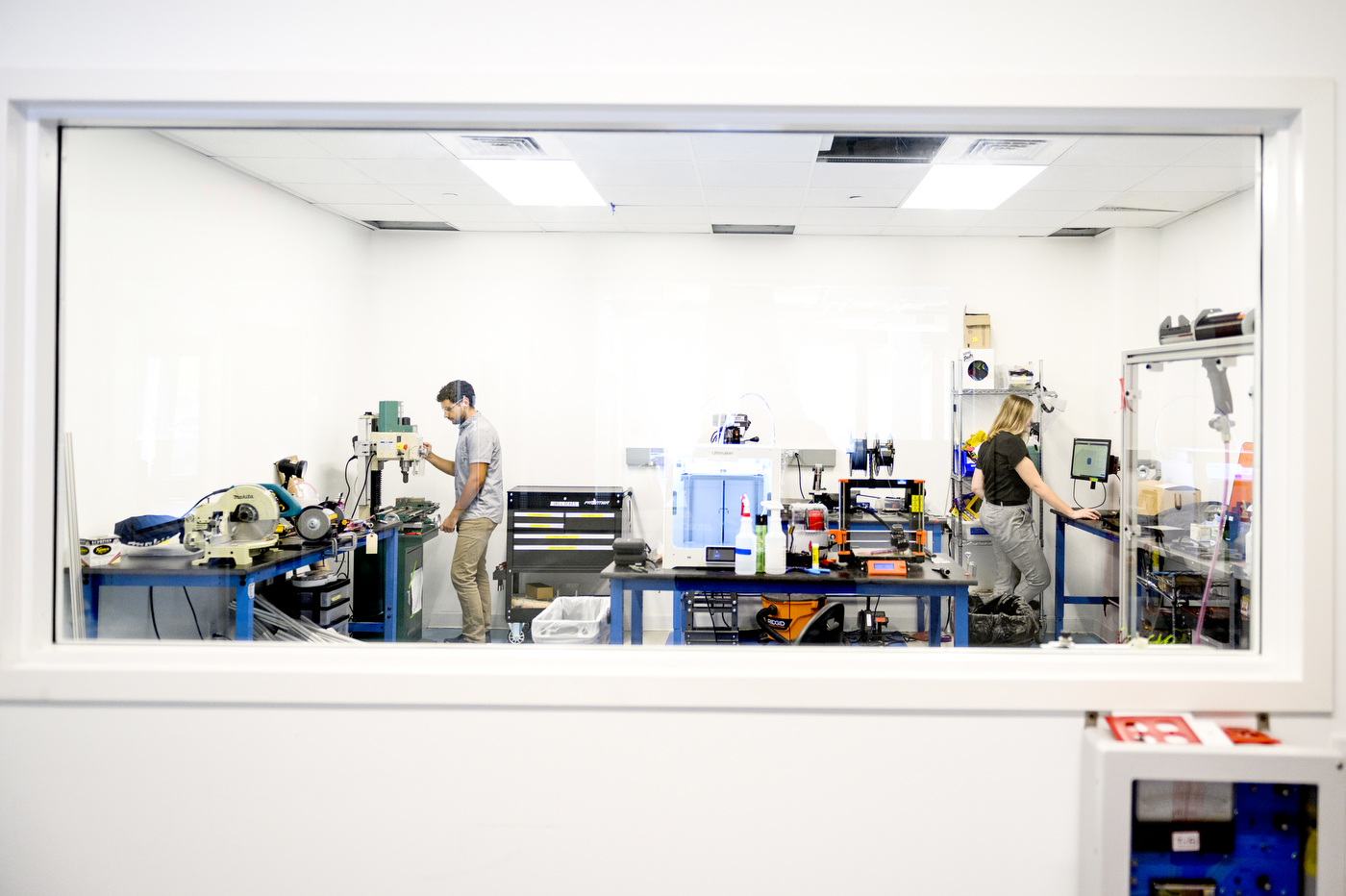
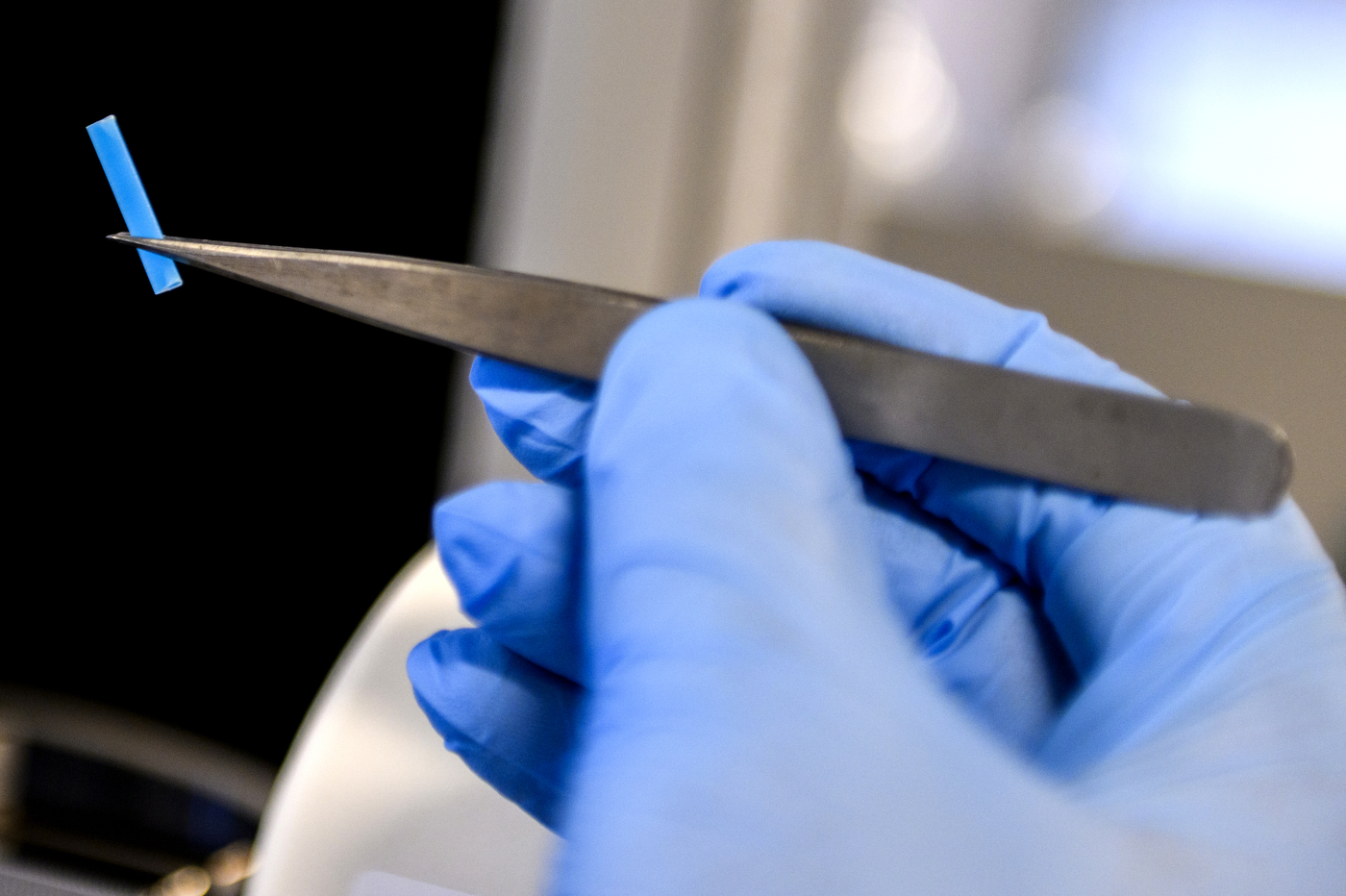
For her initial co-op project, she was asked to integrate an electrical system into mechanical systems.
“I was tasked with wiring a control box and speccing out power supplies—things that I had never done before,” recalls Liebler, now a senior associate engineer at Lyndra. “That was really exciting. It definitely pushed my limits and gave me confidence and the ability to run a meeting and set deadlines and timelines and all that.”
Despite working remotely during the COVID-19 pandemic, Liebler was tasked with designing important equipment that hastened the development process by compressing elements of the company’s long-acting pill while recording data.
“I ended up coming back to Boston during the middle of COVID when nobody was here to build it up in our shop,” Liebler says. “I ended up building two more of the machines in the latter half of my co-op, once I’d stayed on part-time, and those machines are still in use today.”
During the pandemic, Lyndra also built a machine which replicates the human stomach, providing a way for the company to test its technology in the lab. The simulated stomach was modeled from a Northeastern capstone project led by Ryde.
Lyndra aims to release its pioneering, long-acting oral capsule in 2025 with the promise of simplifying the number of dosages of drugs that have been prescribed to people—ultimately helping anyone who takes medicine. Eventually the company plans to offer a capsule time-loaded with one month of medications.
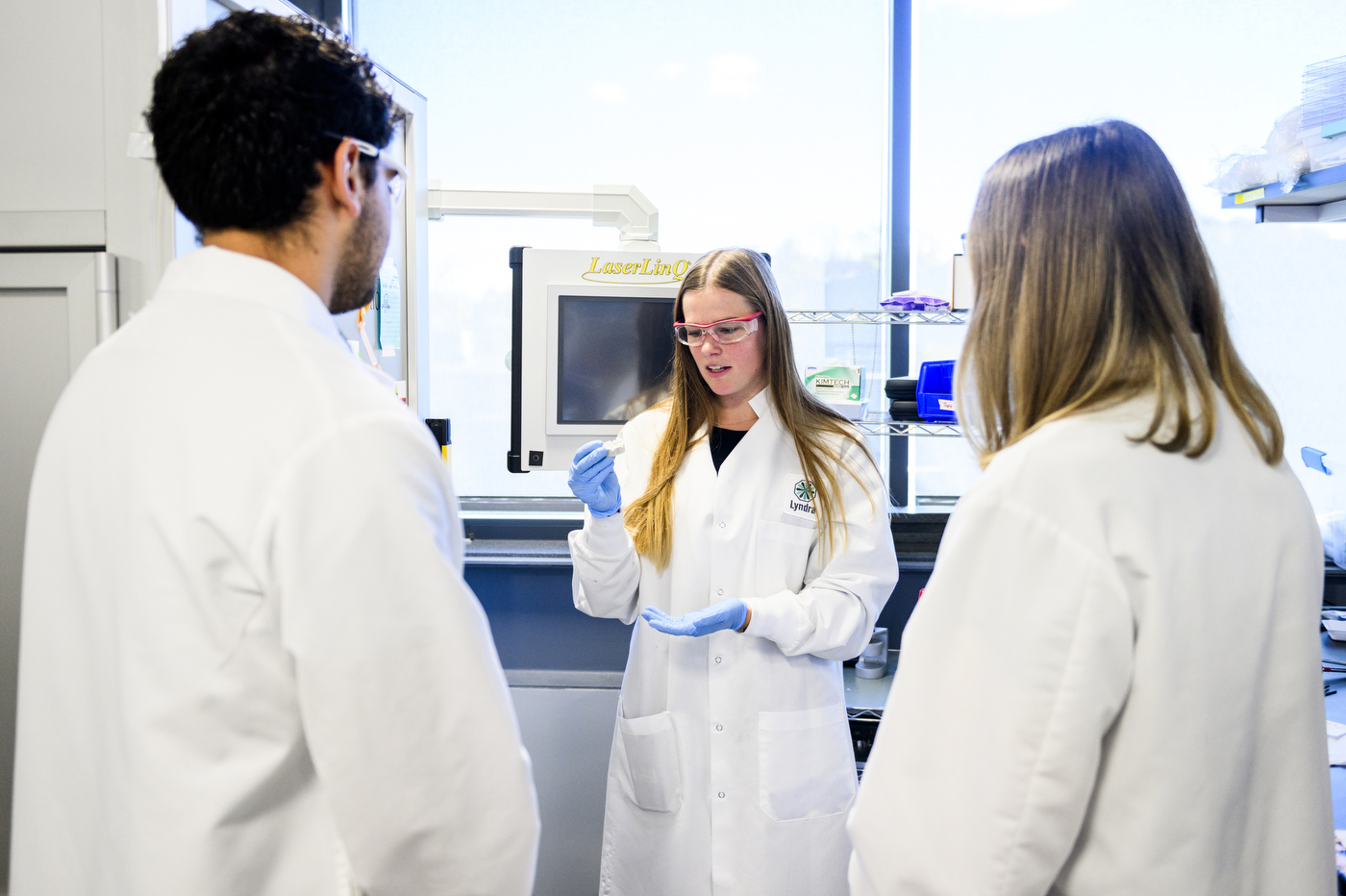
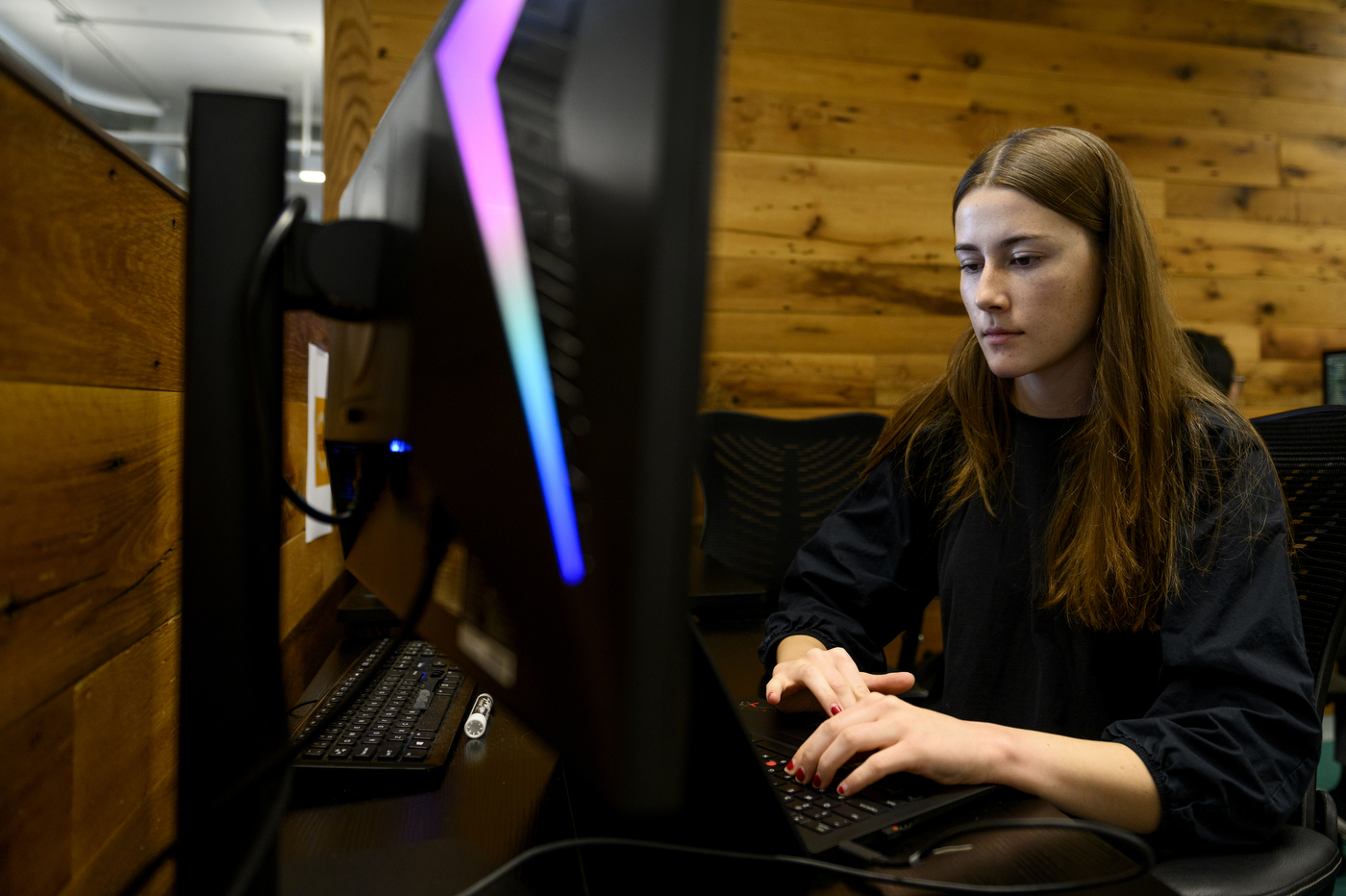
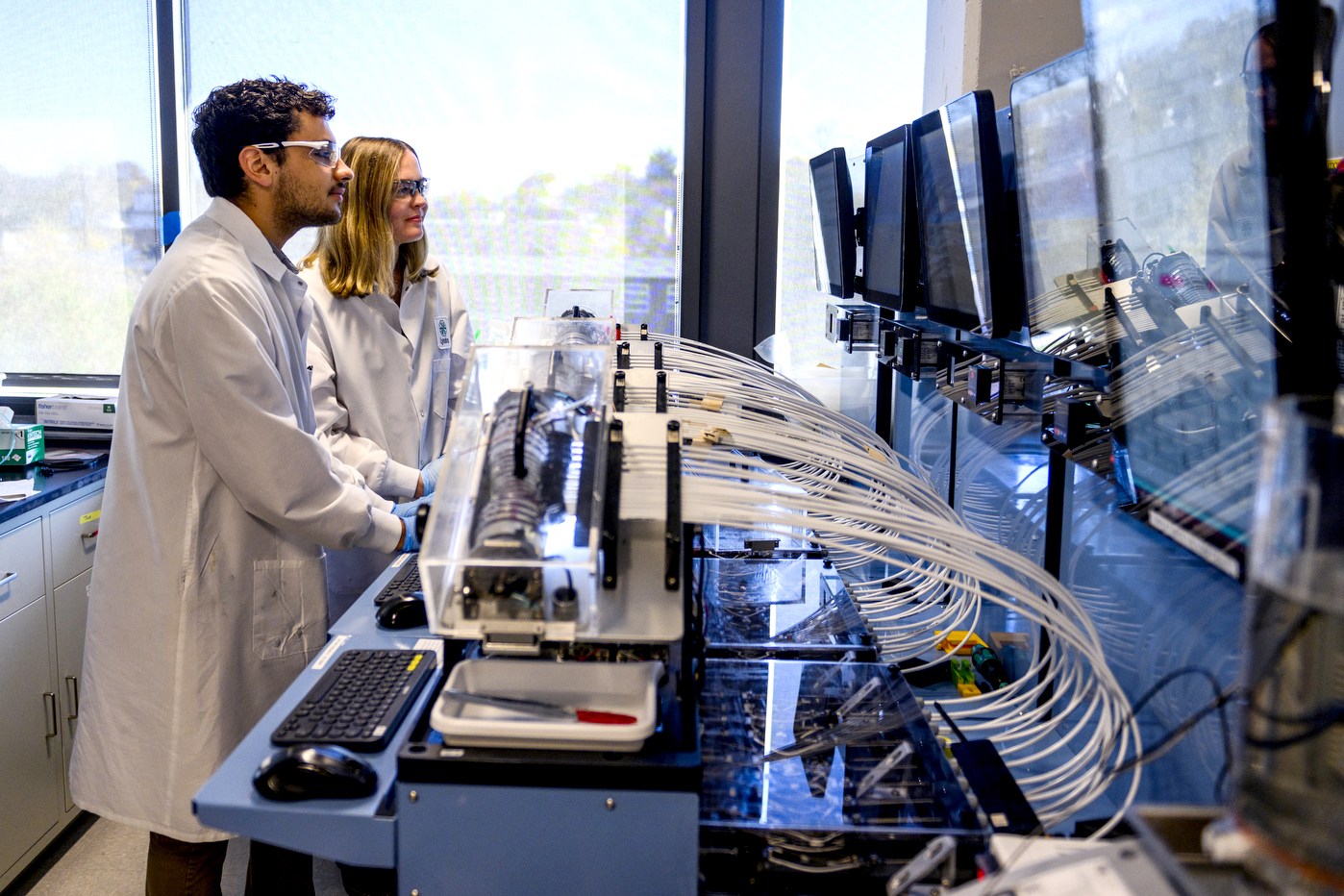
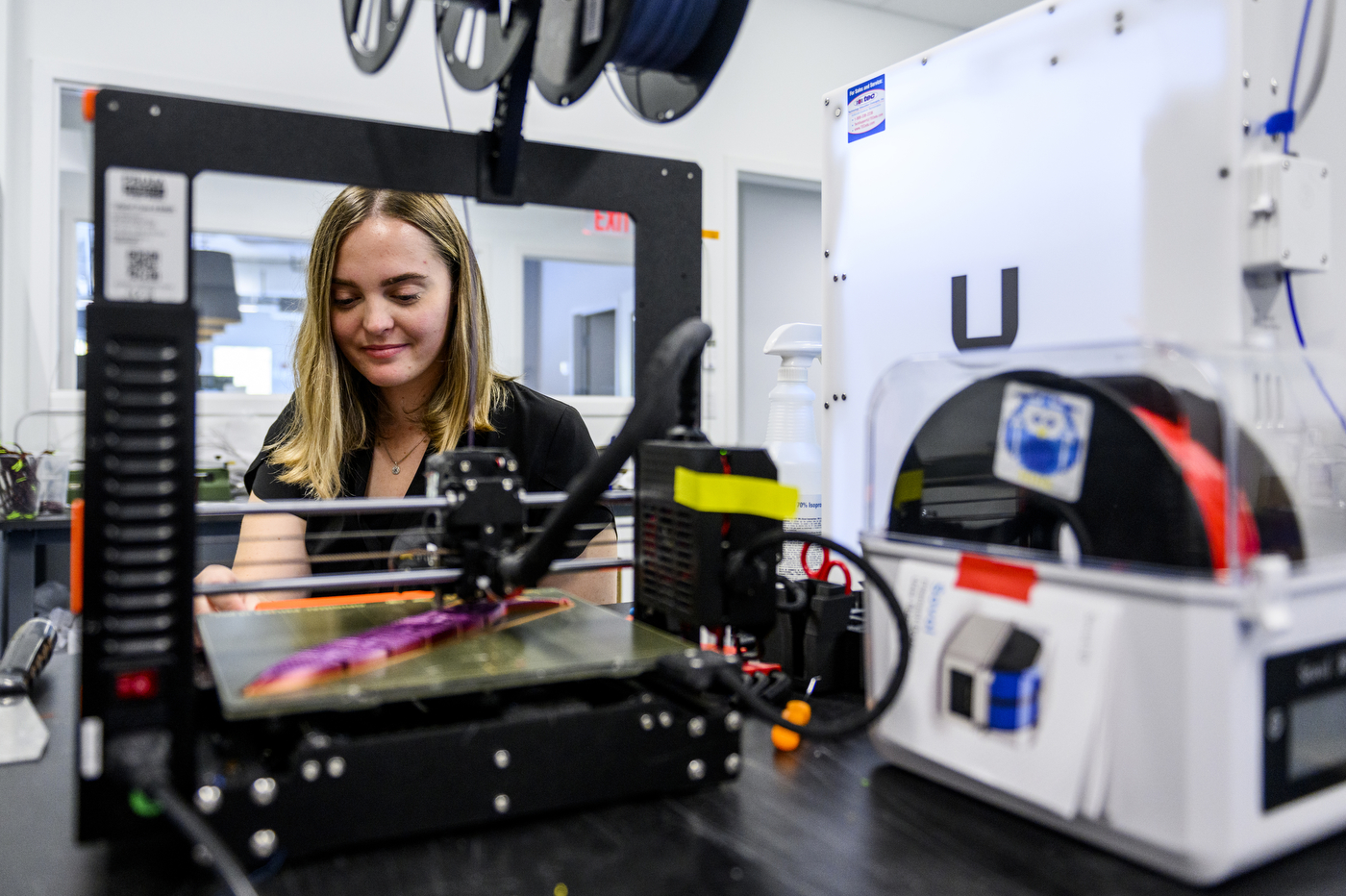
“Patient adherence is a major challenge,” Lyndra vice president Tyler Grant says. “You look at the data and maybe 50% of people aren’t taking their medication, which leads to all sorts of problems, like rehospitalization. It’s very costly and really bad for the patients when they don’t take their medication. But with that comes a complicated piece: How do you take something orally and get it to deliver a drug for a week or longer—which doesn’t exist today?”
Enter Ryde, who surprised Grant in 2016 by accepting a co-op from year-old Lyndra over its more evolved tech rivals. Ryde, who wanted a demanding experience, wound up defining Lyndra’s approach to creativity.
“He was working on critical things for a phase one clinical trial and was really part of the team—and we treated him that way,” Grant says. “We couldn’t get what we’re trying to get done without the co-ops and Northeastern has been a critical piece of that since the beginning.”
Several team members and co-ops joined Grant and others in inventing the dosage form—a rubbery star-shaped delivery system that resembles the spokes of a bicycle tire. The spokes can be filled with drugs to be released for a specific amount of time. The tiny contraption is then folded inside a normal-sized capsule for the patient to swallow.
“It’s great giving other people the opportunity to learn as much as I was able to,” says Ryde, who is limited in what he can say about the groundbreaking technology. “Making sure that they have a great experience is a mutually beneficial relationship.”
The six-month co-op window fits with Lyndra’s design cycle, based on the cutting-edge nature of its projects.
“You have to make everything from scratch and everything’s a short timeline,” says Lyndra president and chief operating officer Jess Ballinger, who equates the approach to “digital tech on steroids.”
“We have to solve problems within three and six months, so it lends itself to using them for these special projects that I think makes us special in biotech and startups,” Ballinger says. “And it gives us a unique opportunity to have a mixture of mechanical, chemical, pharmaceutical, biological—every discipline—because it takes every science to make this happen.
“We wouldn’t be where we are if we didn’t have it,” Ballinger says of the co-op program. “The co-op group, they’re not biased. And they’re not 30 years in this like I am, and so they don’t get caught in [worrying about] the regulator.”
Chris Forlini, a fourth-year chemical engineering student at Northeastern, has been involved in mechanical testing and analyzing data at Lyndra.
“I did not expect to be doing some of the work that I’m doing now—and to actually be benefiting the company,” he says.
Sarah Tomasco, in her fourth year of mechanical engineering at Northeastern, has been designing mechanical tests that provide faster feedback for the dosage form.
“The work I do really matters and has an impact on the company, which is something I was looking for,” Tomasco says.
Rhyann Clarke, who will be graduating in bioengineering this month with a concentration in medical devices, returned to Lyndra on a summer internship after serving a co-op at the company.
“A lot of the practices that I’ve learned here I wouldn’t have been able to learn anywhere else,” she says. “They gave me a lot of freedom to lead my own experiments, and then I also felt like I had a lot to learn, given that the product has so many different processes. I’ve learned how to work and communicate with a bunch of different teams.”
Lyndra often encourages its co-ops to seek experiences in other fields before returning to the company.
“You get young and ambitious people that are curious, that want to make a difference,” Grant says. “It’s amazing what they can do if you just don’t constrain them.”
For media inquiries, please contact media@northeastern.edu.






